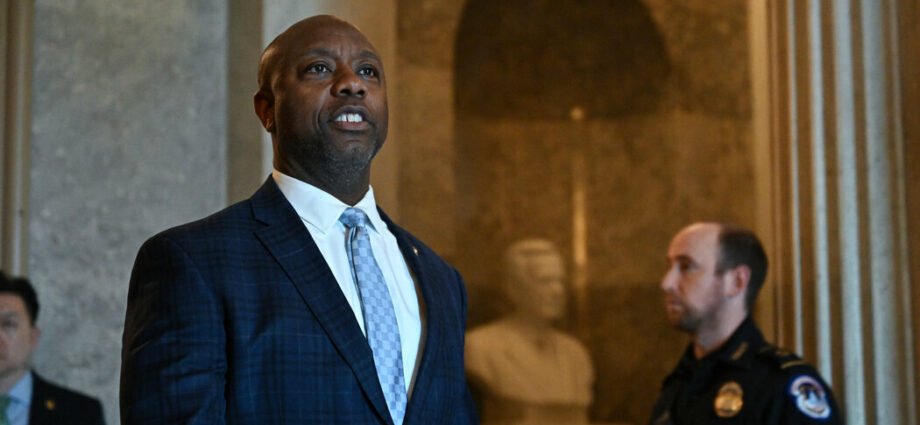The chatty daytime talk show “The View” might seem like an unlikely platform for Tim Scott, a senator from South Carolina and a presidential candidate, to get his footing with Republican primary voters, but he saw an opening on Monday and tried to make the most of it.
Mr. Scott, the first Black Republican from the South elected to the Senate since Reconstruction, had asked for an audience on the show after a co-host, Joy Behar, said Mr. Scott “doesn’t get it” when he denies the existence of systemic racism, which is why, she said, he is a Republican.
Before a largely white, partisan crowd in Des Moines, Iowa, on Saturday, Mr. Scott had promised his appearance would make sparks fly, but in the end, the senator and the co-hosts largely spoke past one another.
He said that suggesting that Black professionals and leaders are exceptions to the Black experience, not the rule, is “a dangerous, offensive, disgusting message to send to our young people today.”
“The fact of the matter is we’ve had an African American president, African American vice president, we’ve had two African Americans to be secretaries of state,” Mr. Scott said. “In my home city, the police chief is African American who’s now running for mayor.”
At one point, he defended Gov. Ron DeSantis of Florida in his fight against Disney, saying that legislation that limits what teachers can say about gender and sexuality in the classroom “was the right issue as relates to our young kids and what they’re being indoctrinated with.”
The comment prompted boos from the studio audience. Whoopi Goldberg, another co-host, loudly scolded the crowd and said that at “The View,” audience members “do not boo.”
The field of candidates running for the Republican presidential nomination in 2024 includes Mr. Scott and Larry Elder, a Black conservative commentator, and two Indian American children of immigrants, Nikki Haley, the former South Carolina governor and United Nations ambassador, and Vivek Ramaswamy, an entrepreneur and author.
All four have put personal stories of isolation and struggle at the center of their campaigns, while saying that family stories of discrimination and racism are relics of the past and do not reflect a form of prejudice still embedded in American society.
On “The View,” Mr. Scott spoke again of his grandfather, who could not make eye contact with a white pedestrian in his small South Carolina town, Salley, and had to step off the sidewalk to let the white man pass by.
“Progress in America is palpable,” he said. “It can be measured in generations.”
Such talk goes over well with the largely white audiences that Republican presidential candidates speak to in the primary season. But on “The View,” the liberal hosts protested. Sunny Hostin, a co-host who is Black, said she was an exception in the story of Black achievement, as is Mr. Scott and the show’s most famous co-host, Whoopi Goldberg.
“When it comes to racial inequality, it persists in five core aspects of life in the U.S. — economics, education, health care, criminal justice and housing,” she said. “At nearly every turn, these achievements were fought, threatened and erased, most often by white violence.”
For Republican candidates, such appearances have multiple benefits. They can use them to appeal to audiences beyond the Republican base, and to say they are willing to step out of the bubble of the primary electorate. They can then amplify the jousting before Republican voters, as Donald J. Trump has done with his CNN town hall last month and as Mr. Ramaswamy does when he tells Republican audiences that his appearance on CNN cost the anchor Don Lemon his job.
Jonathan Weisman is a Chicago-based political correspondent, veteran journalist and author of the novel “No. 4 Imperial Lane” and the nonfiction book “(((Semitism))): Being Jewish in America in the Age of Trump.” His career in journalism stretches back 30 years. @jonathanweisman
Source: Read Full Article
-
Sir Bill Cash’s warning to Sunak over Northern Ireland deal
-
Javid claims Conservatives need to reclaim ‘moral purpose’ as reputation slips away
-
Sunak to launch ‘largest expansion in training and workforce in NHS history’
-
Utah becomes first state to sign law limiting kids' social media use
-
Patel urges Hunt to ‘end war on motorists’ and cut fuel duty

